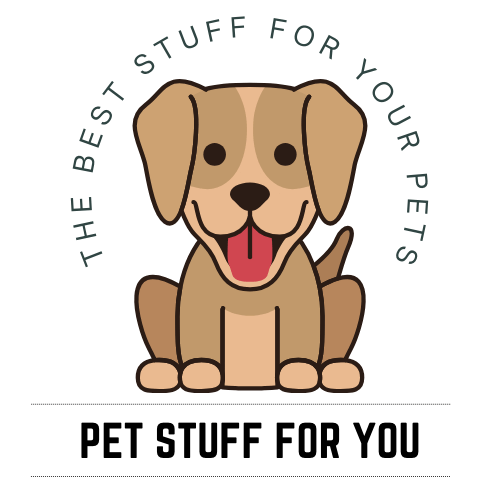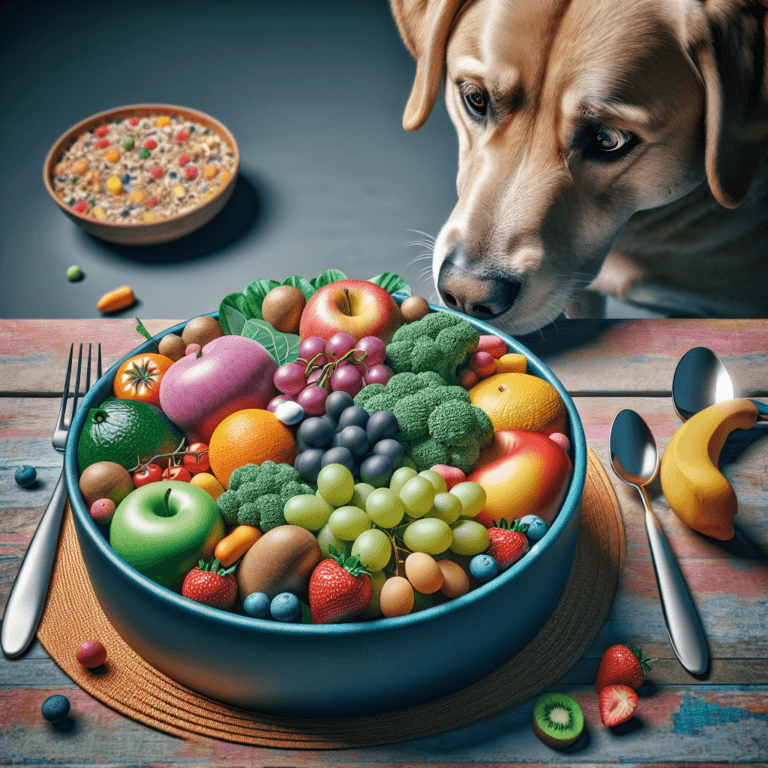Have you ever wondered if it’s safe for your furry friend to indulge in your delicious human food? You may be tempted to share a tasty treat with your dog from time to time, but there are certain factors to consider before doing so. In this article, we will explore the safety of dogs consuming human food and provide insights on what foods should be avoided to ensure their well-being. Whether you’ve been guilty of sneaking your dog a bite or are simply curious about the topic, read on to learn more about the potential risks and benefits of feeding human food to your beloved canine companion.
Introduction
As a dog owner, you may find yourself wondering if it is safe to share your meals with your furry friend. While dogs have different dietary needs than humans, there are certain human foods that can be safely incorporated into their diet. However, it is important to be aware of the foods that can be toxic to dogs and the potential risks associated with feeding them human food. In this article, we will explore common human foods that are safe for dogs, foods that can be toxic to dogs, factors to consider before feeding dogs human food, the benefits and risks of feeding dogs human food, best practices for feeding dogs human food, alternative options to human food for dogs, and conclude with some important takeaways.
Ready for Cat Trivia?
Test your knowledge about cats!

Common Human Foods That Are Safe for Dogs
Lean meat
Lean meats such as chicken, beef, and turkey can be a healthy addition to your dog’s diet. These meats are a great source of protein and can be given in moderation. It is important to ensure that the meat is cooked thoroughly and doesn’t contain any seasonings, spices, or additives that could be harmful to your dog.
Fish
Fish, such as salmon or tuna, is another human food that can be safe for dogs. It is an excellent source of omega-3 fatty acids, which can help promote healthy skin and coat. However, be cautious of the fish bones, as they can pose a choking hazard. It is also essential to make sure the fish is cooked properly and not seasoned or prepared with any harmful ingredients.
Fruits (in moderation)
Certain fruits, such as apples, bananas, and blueberries, can be included in your dog’s diet. These fruits provide vitamins, fiber, and antioxidants. However, it is crucial to remove any seeds, pits, or cores before feeding them to your furry friend. Also, ensure that the fruits are given in moderation, as too much sugar can be harmful to dogs.
Vegetables (in moderation)
Just like fruits, some vegetables can be safe for dogs to consume. Carrots, green beans, and sweet potatoes are examples of vegetables that can be given to your dog as part of a balanced diet. These vegetables offer essential nutrients and can even be a healthy alternative to dog treats. However, it is important to cook or steam these vegetables before feeding them to your dog, as raw vegetables can be challenging for them to digest.
Plain rice and pasta
Plain rice and pasta can be safe options to include in your dog’s diet, especially if they have an upset stomach or digestive issues. These bland foods can help soothe their digestive system and provide them with energy. However, make sure to serve plain rice and pasta without any seasonings or sauces that could be harmful to your dog.
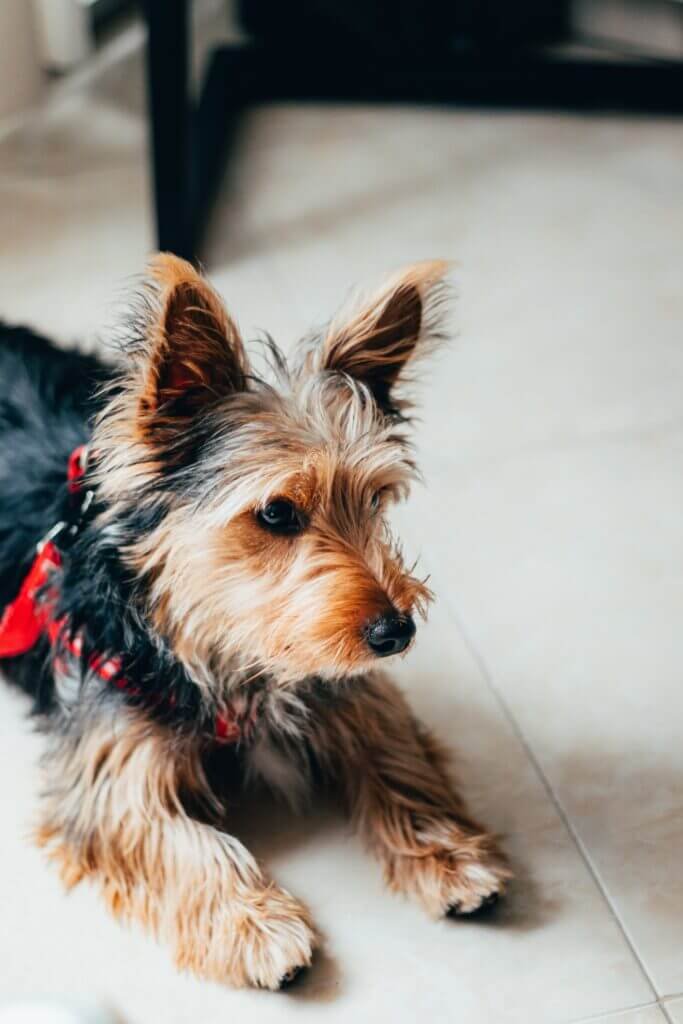
Human Foods That Can Be Toxic to Dogs
While there are several human foods that can be safely shared with dogs, there are certain foods that are highly toxic and should be avoided at all costs.
Chocolate
Chocolate contains theobromine, a substance that can be toxic to dogs. Even small amounts of chocolate can cause symptoms such as vomiting, diarrhea, increased heart rate, and in severe cases, it can be fatal. It is essential to keep all forms of chocolate, including cocoa powder and dark chocolate, out of your dog’s reach.
Grapes and raisins
Grapes and raisins are highly toxic to dogs and can cause kidney failure. Even a small amount can be dangerous and potentially life-threatening. It is important to never feed your dog grapes or raisins and be cautious of foods that contain them, such as certain trail mixes or baked goods.
Onions and garlic
Onions and garlic, whether raw, cooked, or powdered, contain compounds that can damage a dog’s red blood cells and cause anemia. It is best to avoid feeding your dog any foods that contain onions or garlic, such as onion soup or certain sauces.
Avocado
Avocado contains a substance called persin, which is toxic to dogs. While the flesh of avocado is not as harmful as the pit, skin, or leaves, it is best to avoid feeding your dog any part of the avocado.
Alcohol and caffeine
Alcohol and caffeine can be extremely dangerous for dogs. They can cause symptoms such as increased heart rate, tremors, seizures, and even death. It is crucial to keep all alcoholic beverages and caffeinated products, such as coffee and tea, away from your dog.
Factors to Consider before Feeding Human Food to Dogs
Before incorporating human food into your dog’s diet, there are several factors that you should consider to ensure their health and safety.
Health conditions
If your dog has any pre-existing health conditions, it is important to consult with your veterinarian before feeding them human food. Certain health conditions may require a specialized diet or restrictions on certain foods. For example, dogs with pancreatitis may need to avoid fatty foods.
Allergies
Just like humans, dogs can have food allergies or sensitivities. Before introducing a new human food, it is essential to monitor your dog for any adverse reactions such as itching, vomiting, or diarrhea. If you suspect that your dog may have a food allergy, consult with your veterinarian for further evaluation.
Portion control
Portion control is crucial when feeding your dog human food. It is important to remember that dogs have different nutritional needs than humans and can easily gain weight if overfed. Moderation is key, and it is recommended to consult with your veterinarian to determine the appropriate portion sizes for your dog based on their breed, age, and activity level.
Food preparation and seasoning
When feeding your dog human food, it is important to prepare it in a way that is safe and suitable for them. Avoid using seasonings, spices, or sauces that can be harmful to dogs. Additionally, ensure that the food is cooked thoroughly and free from any bones, seeds, or other potential hazards.
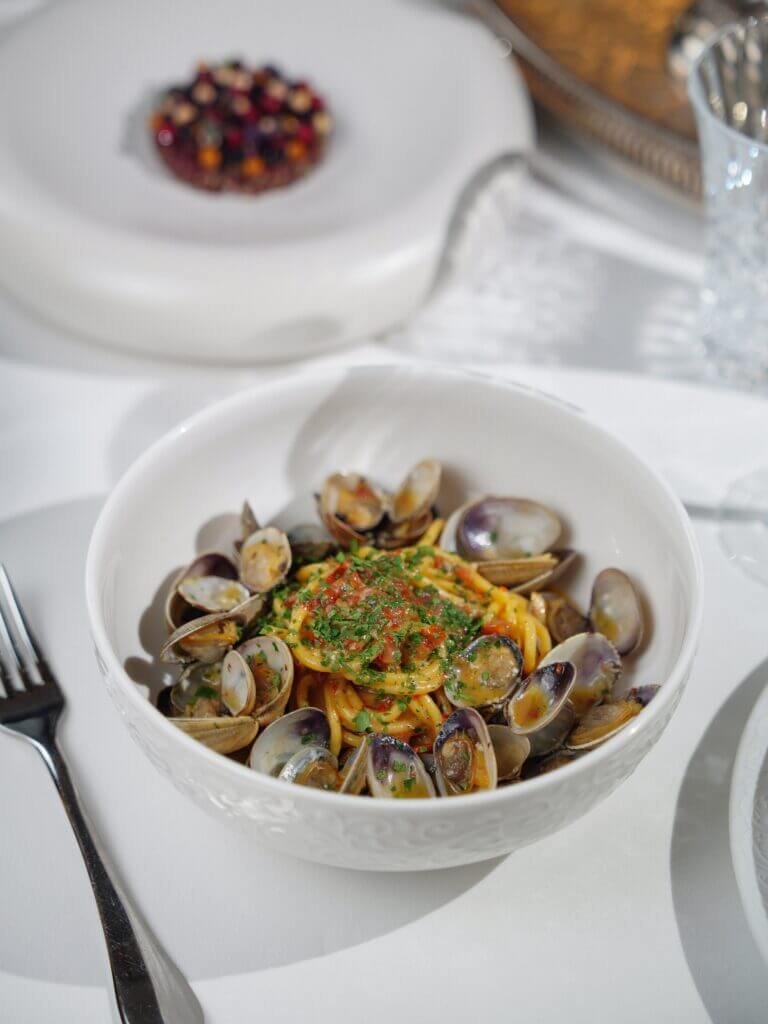
Benefits of Feeding Dogs Human Food
Feeding dogs human food, when done correctly, can offer several benefits to their overall health and wellbeing.
Balanced nutrition
Many human foods can provide dogs with essential nutrients that contribute to their overall health. Lean meats offer high-quality protein, fruits and vegetables provide vitamins and antioxidants, and plain rice and pasta can provide energy and aid digestion. By incorporating a variety of human foods into their diet, you can help ensure that your dog receives a balanced and nutritionally complete meal.
Variety in diet
Feeding dogs a variety of human foods can prevent them from becoming bored with their diet. Offering different flavors and textures can stimulate their senses and make mealtime more enjoyable. This variety can also help prevent them from developing food sensitivities or allergies by exposing them to a range of ingredients.
Improved digestion
Some dogs may struggle with digestive issues or have sensitive stomachs. Feeding them human foods such as plain rice or cooked vegetables can help soothe their digestive system and promote healthy digestion. These easily digestible options can be especially beneficial if your dog is experiencing an upset stomach or recovering from an illness.
Enhanced overall health
Providing dogs with a diverse array of human foods can contribute to their overall health and wellbeing. The vitamins, minerals, and antioxidants found in many human foods can help support their immune system, promote healthy skin and coat, and improve their overall vitality. By incorporating these foods into their diet, you can contribute to their long-term health and happiness.
Risks of Feeding Dogs Human Food
While there are benefits to feeding dogs human food, it is important to be aware of the potential risks associated with this practice.
Nutritional imbalances
If not done correctly, feeding dogs human food can lead to nutritional imbalances. Dogs have specific dietary requirements, and their nutritional needs differ from those of humans. It is important to ensure that your dog’s diet provides all the necessary nutrients, such as protein, carbohydrates, fats, vitamins, and minerals. If relying solely on certain human foods, your dog may not receive a complete and balanced diet.
Obesity
Overfeeding dogs with human food can contribute to obesity, which is a common health issue in dogs. Human food can be higher in calories and fats than what dogs require. It is important to be mindful of portion sizes and not exceed your dog’s daily calorie needs. Obesity can lead to various health problems, including joint issues, diabetes, and heart disease.
Digestive issues
Feeding dogs unfamiliar or inappropriate human foods can result in digestive issues. Some human foods may contain ingredients that are difficult for dogs to digest, leading to symptoms such as vomiting, diarrhea, and bloating. It is crucial to introduce new foods gradually and monitor your dog for any adverse reactions.
Toxicity risks
Certain human foods, as mentioned earlier, can be toxic to dogs. It is essential to be aware of these foods and avoid feeding them to your dog. Even small amounts of these toxic foods can have severe consequences on their health. Vigilance and knowledge of harmful ingredients are key to keeping your dog safe.

Best Practices for Feeding Dogs Human Food
If you decide to incorporate human food into your dog’s diet, it is important to follow these best practices to ensure their safety and wellbeing.
Consult with a veterinarian
Before making any changes to your dog’s diet, it is recommended to consult with your veterinarian. They can assess your dog’s specific nutritional needs, provide guidance on portion sizes and ingredient choices, and determine if there are any underlying health conditions that should be taken into consideration.
Avoid harmful ingredients
When preparing human food for your dog, it is crucial to avoid using harmful ingredients. This includes foods mentioned earlier as toxic to dogs, such as chocolate, grapes, onions, and garlic. Additionally, avoid using seasonings, spices, or additives that can be harmful to your dog. When in doubt, it is always best to err on the side of caution and stick to plain, unseasoned, and dog-friendly ingredients.
Proper food preparation
Proper food preparation is essential to ensure the safety of the human food you are feeding your dog. Cook meats thoroughly, remove any bones or potential hazards, and avoid feeding raw or undercooked foods. Fruits and vegetables should be washed, peeled, and, if necessary, cooked or steamed for better digestibility.
Gradual integration
When introducing new human foods to your dog’s diet, it is important to do so gradually. Sudden changes can upset their stomach and lead to digestive issues. Start by incorporating small amounts of the new food and gradually increase the portion size over time while monitoring for any adverse reactions.
Monitor for adverse reactions
While some human foods may be safe for dogs, every dog is unique, and individual sensitivities or allergies may be present. It is essential to monitor your dog for any adverse reactions when introducing new foods. If you notice symptoms such as itching, vomiting, diarrhea, or behavioral changes, discontinue feeding that particular food and consult with your veterinarian.
Alternative Options to Human Food for Dogs
If you are unsure about feeding your dog human food or prefer to stick with other options, there are alternative choices to meet their nutritional needs.
Commercial dog food
Commercial dog food is formulated to meet the specific nutritional requirements of dogs. These foods undergo rigorous testing and quality control to ensure they provide a complete and balanced diet. There are different types of commercial dog food available, including dry kibble, wet canned food, and dehydrated or freeze-dried options. Choose a high-quality dog food that matches your dog’s age, breed, and specific needs.
Homemade dog food recipes
If you prefer to have more control over your dog’s diet, you can consider preparing homemade dog food. However, it is crucial to work with a veterinary nutritionist to ensure you are providing a nutritionally complete and balanced diet. This will help ensure your dog receives all the necessary nutrients in the correct proportions.
Specialized dog diets
In some cases, dogs may require specialized diets due to specific health conditions, allergies, or sensitivities. These specialized diets may be recommended by your veterinarian and can include prescription diets or commercial diets designed for dogs with certain health issues. If your dog has unique dietary needs, consult with your veterinarian to explore the best options for their specific situation.
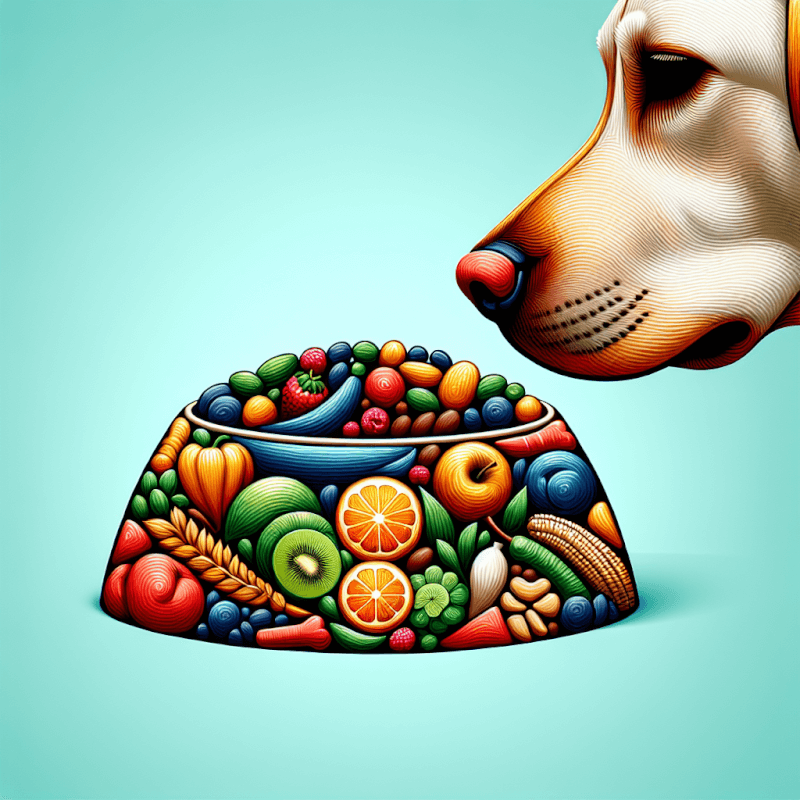
Conclusion
In conclusion, while it is safe to share some human foods with dogs, it is crucial to be aware of the foods that can be toxic and the potential risks associated with feeding them human food. Lean meats, fish, fruits, vegetables, plain rice, and pasta are examples of common human foods that can be safely incorporated into a dog’s diet. However, foods such as chocolate, grapes, onions, garlic, avocado, alcohol, and caffeine should be avoided. Factors such as health conditions, allergies, portion control, and food preparation should be considered before feeding dogs human food. Feeding dogs human food, when done correctly, can provide balanced nutrition, variety in their diet, improved digestion, and enhanced overall health. However, there are risks such as nutritional imbalances, obesity, digestive issues, and toxicity risks that need to be taken into account. Following best practices, such as consulting with a veterinarian, avoiding harmful ingredients, proper food preparation, gradual integration, and monitoring for adverse reactions, can help ensure the safety and wellbeing of your dog. Finally, if you prefer alternatives to human food, commercial dog food, homemade dog food recipes with professional guidance, or specialized dog diets may be suitable options. The priority is to prioritize your dog’s health and provide them with a diet that meets their individual needs.
